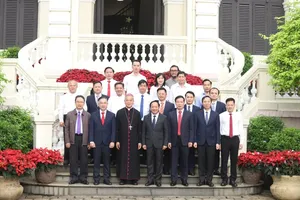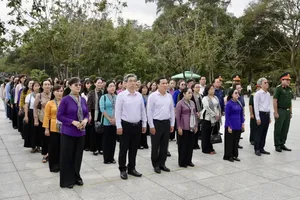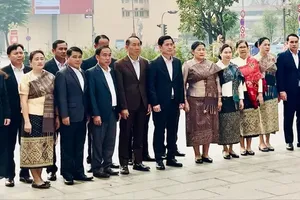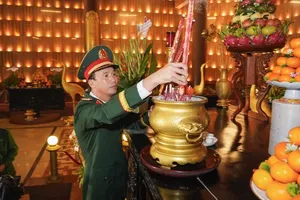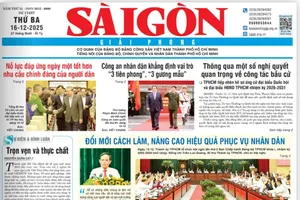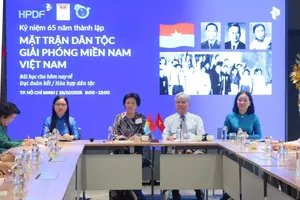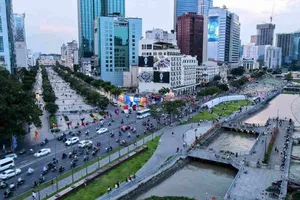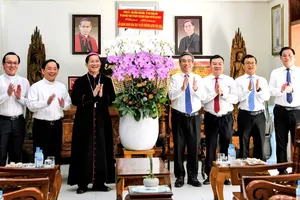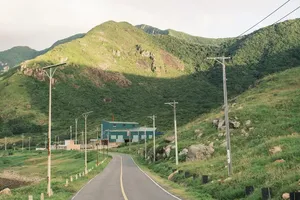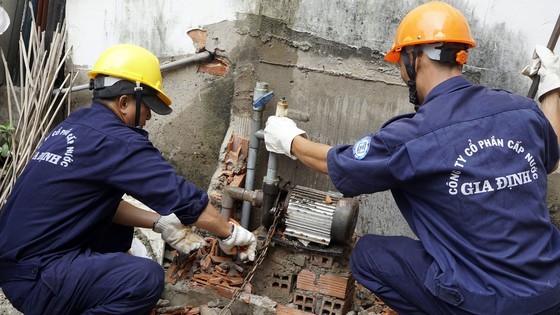 Sawaco workers install water clocks in a household
Sawaco workers install water clocks in a household
According to Associate Professor Ha Quang Khai from the University of Science and Technology’s Faculty of Environment and Natural Resources, under the HCMC National University, studies in 2015 have shown that Ho Chi Minh City sank on average 4 cm as a consequence of groundwater withdrawal a year, mostly related to activities human activity, which is partly due to groundwater extraction.
Many studies carried out by the Ho Chi Minh City University of Technology have recorded that groundwater exploitation leads to saltwater intrusion in Nha Be District and Binh Chanh District. Worse, farmers have been using fertilizers and wastewater which pollute water sources in Cu Chi and Hoc Mon districts.
According to experts, the southern metropolis needs to soon have effective solutions to limit exploitation of groundwater while using groundwater rationally as well as protect underground water sources. According to reports, from 2000 up to now, the amount of groundwater exploitation in the city is increasing, now more than 700,000 cubic meters of groundwater are exploited a day.
According to Mr. Huynh Thanh Nha, Head of the Division of Water and Mineral Resources Management under the Ho Chi Minh City Department of Natural Resources and Environment, businesses with permission for groundwater exploitation and dwellers are using the special water. Businesses are required to formulate a plan to reduce groundwater extraction. Simultaneously, every year the department coordinates with administrations in districts to review the list of households using clean water for daily life. Most residents use groundwater for irrigation and washing.
Mr. Bui Thanh Giang, Deputy General Director of Saigon Water Supply Corporation (Sawaco), added that Sawaco has supplied water to residents in all districts in Ho Chi Minh City, except Cu Chi outlying district.
According to the southern largest city’s policy, Sawaco is implementing a roadmap to limit groundwater exploitation. Previously, more than 130,000 cubic meters of groundwater were exploited a day ten years ago. Currently, the city's water supply industry has reduced to 70,000 cubic meters a day. By 2021, groundwater exploitation volume will continue to decrease to 66,000 cubic meters a day.
According to Mr. Bui Thanh Giang, the company aims to reduce the exploitation of groundwater by focusing on investing in installing a water supply network system to cover the whole city.
Since 2017, Sawaco has fulfilled the target of supplying clean water to all of the households citywide. However, people in many districts have opted still for groundwater accounting for nearly 8 percent of customers, even though they can access clean water. Sawaco has set a target that by 2022, groundwater extraction will be at 60,000 cubic meters a day and in 2023 it will be reduced to 50,000 cubic meters a day.
Seriously, the quality of underground water in districts such as 12, Binh Tan, Tan Binh, and Binh Chanh, and Hoc Mon districts fails to meet the standard. Doctor Cao Ngo Lam, Head of the Department of Public Health, Center for Disease Control of Ho Chi Minh City (HCDC), informed that in 2015, HCDC had sampled 1,400 wells samples. Test results have shown that 70 percent of well water in these above-mentioned districts did not meet the standard. Particularly in 2021, of 160 samples of well water, only three samples of underground water met physico-chemical criteria.
Currently, many people in Ho Chi Minh City still use underground water without concern for quality, without taking samples for testing. Only when they feel unusual signs of taste, color, do they find out the cause.
Currently, the Ministry of Health has a new standard for assessing the quality of domestic water with 99 indicators. With the new standards, all well water samples will surely not pass.
In fact, the illegal exploitation of groundwater is a violation of the law in the field of water resources. The 2012 Law on Water Resources prohibits the exploration, exploitation and use of water resources, discharge of wastewater into water sources, and drilling practices.
According to Mr. Cao Thanh Binh, Head of the Department of Culture and Social Affairs under the municipal People's Council, fresh water is a limited resource because there is such little amount of fresh water found on Earth.
Currently, the pollution of river and canal water sources is getting worse and worse; therefore, if authorities don’t protect groundwater, the city will have difficulty in drinking water in the future. In fact, in Ho Chi Minh City, many districts have tens of thousands of drilled wells. As a matter of fact, it is extremely necessary to strengthen communication about the consequences and quality of the groundwater to dwellers; at the same time, punishment must be tough.

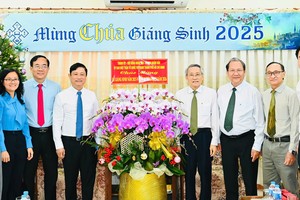
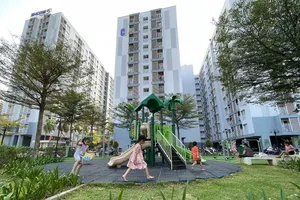
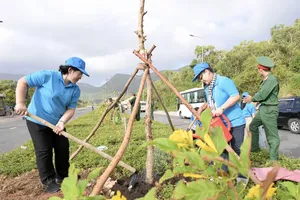
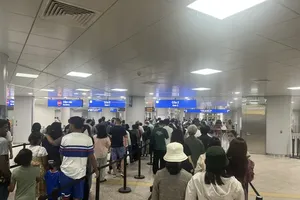
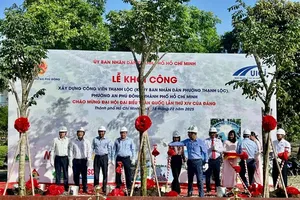
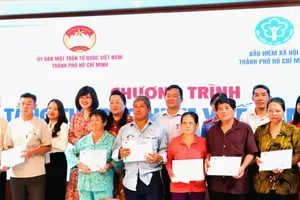
)

